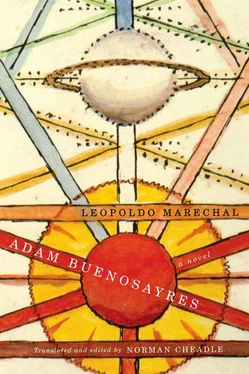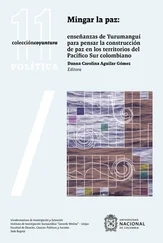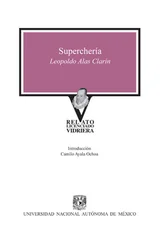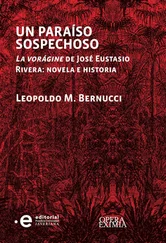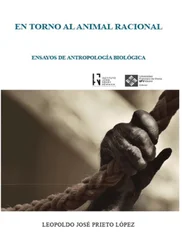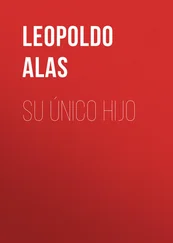A salvo of applause burst forth from the grandstand, and excited voices rang out:
— That’s what I call a speech!
— A real master!
— Shhh! Shhh! Listen!
The fat surgeon resumed his peroration:
— My real purpose just now is to denounce before this College the strange conduct of our young student Lucio Negri. Prey to retrograde influences, he has regressed to the dark ages in the grip of a reprehensible mania; to wit, that of searching for a soul in the very anatomies this College has so generously put at his disposition.
Laughter and shouts resounded now:
— Reactionary!
— Throw him out of the College!
— Inexplicable anachronism!
The fat surgeon gestured impatiently for silence.
— No, my esteemed colleagues! he said. What worries me is not our young disciple’s fantasy or his anatomical soul-searching. My real fear — and I’m absolutely serious — is that by dint of searching Dr Lucio Negri may end up discovering it.
A wave of astonishment rippled over the surgeons and audience in the amphitheatre.
— What?
— The professor’s gone mad!
— What’s he saying?
The fat surgeon looked at them coldly:
— Doctors! he expounded sadly. With unspeakable sacrifices we have invented and disseminated a mystique of the body. You will recall that for centuries humanity witnessed a shameful spectacle: the Soul, duking it out with the Body, resorted to low blows. All to the great satisfaction of ugly theologians who, lounging in plush seats at ringside , presided over the boxing match , jeering at the Body and cheering like crazy for the Soul. Fortunately, we came along and set ourselves up as the Body’s trainers. By means of gargles, massages, and adulation, we managed to bring him around; and in the final rounds the Body got the Soul on the ropes and won by a clean knock-out . 166So now the Body is the idol of the multitudes. So successful was our rehabilitation of the body that all of humanity now depends on our scalpels. Have I got it right, or am I exaggerating?
— Right on, you’ve got it! came the exclamations from the stands.
— Well then, concluded the fat surgeon. What would happen if, thanks to treachery or madness in a few colleagues, the Soul came back into the ring and rained on our parade? 167
Silence dominated the room for about half an hour: 168those present had trouble digesting the fat surgeon’s question. But once the lightbulb of comprehension lit up, all hell broke loose. The College fell en masse upon Lucio Negri, who was now struggling at the hands of the scalpel operators. Body parts fell down on us like a shower of projectiles. All was shouting, fighting, and confusion in the room.
We took our leave, Samuel out in front, Schultz and I bringing up the rear. The best thing might have been to escape through the bronze door out to the open air. But Samuel, who must have had his itinerary, led us to another door off in a corner. On it was a sign reading Do Not Enter . Ignoring the order, Samuel opened the door, ushered us through, and closed it stealthily behind him. Now we found ourselves in a room with tiled walls and a linoleum floor. Over to the left, someone was taking a shower, a little bald man with abundant body hair. To the right, a male nurse sat at an upright piano, languidly playing Schumann’s Traümerei . A roly-poly female nurse was bustling here and there, now laying out clothing or tending to the sterilizing apparatus, now observing the pianist or darting sharp glances toward the shower stall. At the back we could see the grille-door of an elevator.
When she saw us come in, the female nurse just about choked with rage:
— There’s a sign on the door! she yelled. How dare you interfere with Dr Aguilera when he’s preparing for work!
Samuel laughed abundantly, crowing between guffaws:
— So here we have the illustrious, the fantastic, the incomparable Dr Aguilera?
— Quiet! whispered the nurse. Dr Aguilera is about to go up to the Operating Room.
And indeed, the little man emerged sputtering from the shower. The nurse draped a towel around him, dried him from head to foot, sprayed eau de cologne on his furry torso, and finally handed him a pair of immaculate white trousers.
— Why are these men here,? said Dr Aguilera, looking at us askance. What are they doing here if their livers are in good shape?
The astrologer Schultz contemplated him unkindly:
— Dr Aguilera, he said. Have you forgotten a certain Señora Ruiz?
— A colossal specimen, recalled the little man as the nurse put two frightful surgical boots on his feet. Señora Ruiz may have looked timid, but she has given science the most disconcerting faecal bolus seen this century.
— Enough of the faecal bolus, grunted Schultz. Dr Aguilera, did you not poison that lady’s mind?
— How?
— Did you not declare, strutting before her like a peacock, what you would or would not have done if, instead of God, it had been up to you to organize the human body? Finding fault with the Creator — you, a dime-store demiurge!
Here Samuel Tesler laughed again, shaking his horned head:
— Dr Aguilera, he said. Describe for us your famous artificial heart with seven valves, or your gutta-percha lungs with the reinforced buttonhole.
But Dr Aguilera wasn’t listening for, at that moment, with all the majesty permitted by his stature, he was suffering the nurse to enfold him in a snow-white surgical gown.
— Liturgy? Schultz asked him bitterly. I see now the information I had was correct. Did you not reckon on how Señora Ruiz’s simple head would be turned by your surgico-religious ravings? Just thinking about it, I hardly know whether to laugh or cry. You imagined you were the Grand Priest of a cruel but necessary rite, and said as much. What a delicious shiver ran down Señora Ruiz’s vertebrae when you spoke to her of the Grand Priest’s morning preparations, your ritual shower, your pompous donning of the sacred robes — the surgeon’s boots, the virgin gown as yet unbloodied, the ominous gloves, the theatrical surgical mask — all reverently served up by acolytes mute as stones! All that was missing was the incense and organ music.
— No pipe organ, but I do have my piano, said Doctor Aguilera as he pulled on his surgical gloves. As for the incense, you’ve given me an idea and I’ll think it over in due course. Although I’d prefer Oriental sandalwood burning in censers.
Dr Aguilera was now fully dressed. At a silent order from the nurse, the pianist began to play the March from Handel’s Theseus . Dr Aguilera coldly saluted. Then, making an “O” with thumbs and index fingers, he proceeded as stately as a Grand Priest toward the elevator, already being opened by the nurse. As if communing with himself, Dr Aguilera stopped for moment at the door, then stepped inside. But the nurse, as though she’d forgotten an important detail, ran to snatch a rose from the vase on the piano, then rushed back to the elevator to hold it beneath the doctor’s nose. Hermetic, solemn, Dr Aguilera inhaled the rose’s perfume. Slowly the metal door closed: enclosed within the box, Dr Aguilera rose like a star in the heavens.
Back we went to the main room. The rumpus was over and done with, and the scalpel-operators had gone back to work. The bronze door invited us to vacate that slaughterhouse, and so we left it behind, on our way to new revelations of which I hadn’t yet the slightest inkling.
The fourth building Samuel showed us was non-descript on the outside, its architecture grey and neutral. But then the hornèd philosopher had us push our way through swinging doors like the ones in neighbourhood movie houses, and we found ourselves in an area of orchestra seats crammed with people silently waiting in front of the stage, its curtain drawn. Schultz, Tesler, and I went up to the front row and sat down in Pullman seats that wheezed and sighed under our weight. We were still getting settled, when a little man in a tuxedo came out on the proscenium and bowed:
Читать дальше
